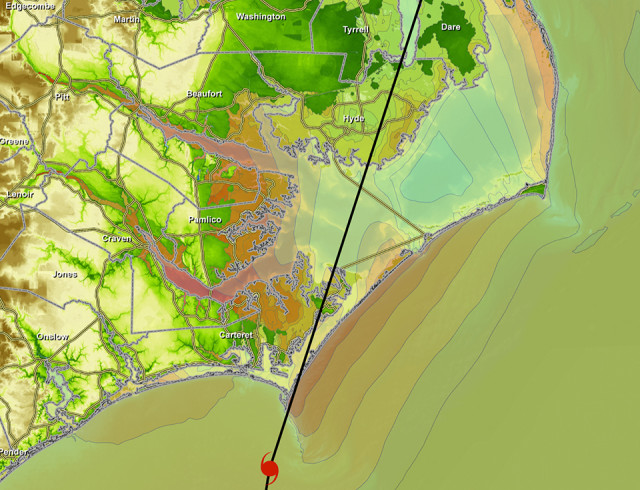Chapel Hill, NC, February 18, 2014 – The iRODS Consortium today announced the Wellcome Trust Sanger Institute, a leading institution in the Human Genome Project now focused on understanding the role of genetics in health and disease, as its newest member. The Sanger Institute is located in Hinxton, UK, near Cambridge. Read more
National Consortium for Data Science white paper points to challenges and solutions for genomics in the age of big data
CHAPEL HILL, NC — Leading researchers in data science and genomics are recommending strategies to help genomic scientists better manage, share, analyze and archive massive research and clinical data sets in an effort to ensure that the big data explosion results in better health outcomes and faster research discoveries. Read more
Faster simulation codes for the world’s most powerful particle accelerator

Image courtesy of CERN
The Large Hadron Collider (LHC), the most powerful particle accelerator ever built, smashes tiny particles into each other in an effort to reproduce the conditions that existed within a billionth of a second after the Big Bang.
But simulating collisions of these particles and their activity during an infinitesimal slice of time creates major computational challenges. When particles collide at high speeds, not only is energy released, but many subatomic particles pop into existence briefly. Different LHC detectors register results differently, and computational simulations must be able to account for these differences in hardware and sort through the background noise in order to accurately simulate an event.
Kaminario and RENCI develop foolproof methodology for designing and testing storage for high performance virtual clusters (HPVCs)
NEWTON, MA–(Marketwired – Jan 14, 2014) – Kaminario, the leading scale-out all-flash array provider, and the Renaissance Computing Institute at the University of North Carolina-Chapel Hill (RENCI), today announced a joint report that provides guidelines on how to test storage for deploying High Performance Virtual Clusters (HPVCs). Aimed at IT administrators, the paper outlines two successful reference architectures for building HPVCs that support large and medium cluster workload requirements and allow for future growth. Read more
DDN becomes first private sector member of iRODS Consortium
DENVER, Nov. 20, 2013 – The iRODS Consortium today announced that DataDirect Networks (DDN), a leading provider of high performance, high capacity, scalable storage systems for big data, has become its first private sector member. Read more
National Consortium for Data Science awards fellowships to researchers working to advance data science
 CHAPEL HILL, NC, Nov. 19, 2013 – The National Consortium for Data Science (NCDS) has named five faculty members at North Carolina universities as its inaugural Data Science Faculty Fellows.
CHAPEL HILL, NC, Nov. 19, 2013 – The National Consortium for Data Science (NCDS) has named five faculty members at North Carolina universities as its inaugural Data Science Faculty Fellows.
The Faculty Fellows will each receive $30,000 to support research projects that address novel and innovative data science research issues. Their work will be expected to advance the mission and vision of the NCDS, which formed in early 2013 as a public-private partnership to address the challenges related to collecting, sharing and using large, diverse data collections, or big data. Twenty faculty members from seven institutions applied for Fellowships. Their proposals were reviewed by a subcommittee from NCDS member institutions.
Consortium announces plans to merge branches of iRODS data management platform
DENVER, Nov. 13, 2013 – The Data Intensive Cyber Environments (DICE) Group at the University of North Carolina (UNC) at Chapel Hill and the University of California at San Diego (UCSD), and RENCI, (UNC-Chapel Hill’s Renaissance Computing Institute), announced today a plan to merge the two main branches of the iRODS (integrated Rule-Oriented Data System) data management platform into a single, sustainable and production-oriented product. Read more
REACH NC selected as top university-based economic development initiative
 The University Economic Development Association (UEDA) announced its 2013 Awards of Excellence winners during its Annual Summit held Oct. 29 in Pittsburgh. The awards recognize UEDA members who are transforming their campuses into engines of economic prosperity through initiatives in five categories: 1) community connected campus; 2) research and analysis; 3) leadership and collaboration; 4) innovation and entrepreneurship; and 5) talent development.
The University Economic Development Association (UEDA) announced its 2013 Awards of Excellence winners during its Annual Summit held Oct. 29 in Pittsburgh. The awards recognize UEDA members who are transforming their campuses into engines of economic prosperity through initiatives in five categories: 1) community connected campus; 2) research and analysis; 3) leadership and collaboration; 4) innovation and entrepreneurship; and 5) talent development.
Gleaning data from a virtual world
RENCI and Duke researchers aim to understand whether VEs can help patients control diabetes

The pharmacy in the virtual environment created by Duke School of Nursing Researchers. The pharmacy allowed study participants to look up health information and information about medications.
Rates of type 2 diabetes are increasing, and the debilitating disease touches the lives of more and more people each day. Although genetic factors do play a role in the chance of an individual developing this chronic condition, lifestyle choices such as diet and exercise, also play crucial roles in both the risk of contracting type 2 diabetes, and managing and controlling it throughout an individual’s life. Read more
NOAA funding will help RENCI continue development of surge forecasting system
CHAPEL HILL, NC – The state of North Carolina is the third most susceptible to hurricane and tropical storm damage, with only Florida and Louisiana taking more hits from hurricanes in the history of weather tracking. In recent years, RENCI has contributed to the never-ending task of protecting the North Carolina coastline from potential damage by developing cyberinfrastructure and software to construct models of wave surge from large-scale storms. Read more



